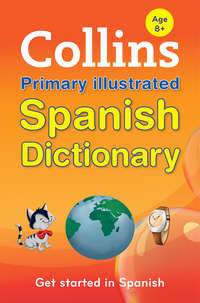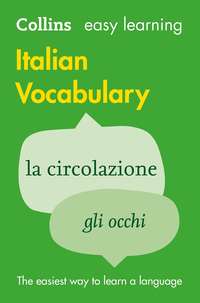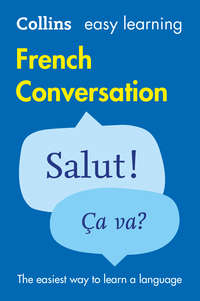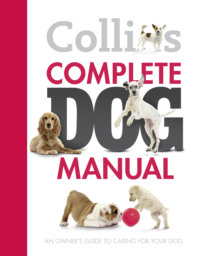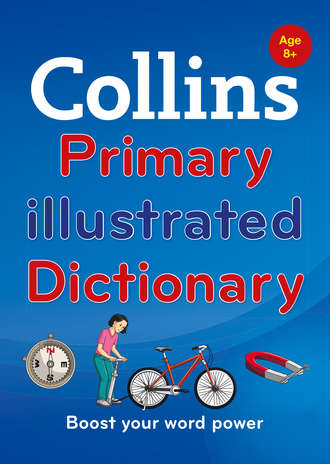
Полная версия
Collins Primary Illustrated Dictionary
3 a solution to a problem
ant ants
NOUN Ants are small insects that live in large groups.
antagonize antagonizes, antagonizing, antagonized
VERB If you antagonize someone, you upset them and make them feel angry.
Antarctic
NOUN the area around the South Pole
antelope antelopes
NOUN a hoofed animal, similar to a deer
antenna antennae or antennas
NOUN 1 one of the two long, thin parts attached to the head of an insect or other animal, which it uses to feel with. The plural is antennae.
2 In Australian, New Zealand and American English, an antenna is a radio or television aerial. The plural is antennas.
anthem anthems
NOUN usually a song of celebration, and sometimes a religious song
anther anthers
NOUN the part of the stamen in a flower where the pollen matures
anthology anthologies
NOUN a collection of writings by various authors, published in one book
[from Greek anthologia meaning flower gathering]
anti-
PREFIX against or opposite • an antimalaria tablet
ANTONYM: pro-
antibiotic antibiotics
NOUN a drug or chemical used in medicine to kill bacteria and cure infections
anticipate anticipates, anticipating, anticipated
VERB If you anticipate an event, you are expecting it and are getting prepared for it.
anticipation NOUN
anticlimax anticlimaxes
NOUN If something is an anticlimax, it disappoints you because it is not as exciting as you expected, or because it occurs after something that was more exciting.
anticlockwise
ADJECTIVE OR ADVERB moving in the opposite direction to the hands of a clock
ANTONYM: clockwise

antidote antidotes
NOUN a chemical substance that works against the effects of a poison
antique antiques
NOUN an object from the past that is collected because of its value or beauty
antiseptic
ADJECTIVE Something that is antiseptic can kill some germs.
antler antlers
NOUN Antlers are the branched horns on the top of a male deer’s head.
antonym antonyms
NOUN a word that means the opposite of another word • Happy is the antonym of sad.
anxiety anxieties
NOUN nervousness or worry
anxious
ADJECTIVE 1 If you are anxious, you are nervous or worried.
2 If you are anxious to do something, you very much want to do it. • She was anxious to pass her ballet exam.
any
ADJECTIVE OR PRONOUN 1 one, some or several • Have you any sausages?
2 even the smallest amount or even one • She can’t eat nuts of any kind.
3 no matter which or what • I’m so thirsty, any drink will do.
anybody
PRONOUN any person
anyhow
ADVERB 1 in any case • It’s still early, but I’m going to bed anyhow.
2 in a careless way • They were all shoved in anyhow.
anyone
PRONOUN any person • I won’t tell anyone.
anything
PRONOUN any object, event, situation or action • Can you see anything?
anyway
ADVERB in any case • It’s raining, but I’m going out anyway.
anywhere
ADVERB in, at or to any place • Can you see him anywhere? • We haven’t got anywhere to play.
apart
ADVERB OR ADJECTIVE 1 When something is apart from something else, there is a space or a distance between them. • The gliders landed about seventy metres apart.
ADVERB 2 If you take something apart, you separate it into pieces.
apartment apartments
NOUN a set of rooms for living in, usually on one floor of a building
ape apes, aping, aped
NOUN 1 a large animal similar to a monkey, but without a tail. Apes include chimpanzees and gorillas.
VERB 2 If you ape someone’s speech or behaviour, you imitate it.
apex apexes or apices
NOUN The apex of something is its pointed top. • the apex of a cone
SYNONYM: vertex

apologize apologizes, apologizing, apologized; also spelt apologise
VERB When you apologize to someone, you say you are sorry for something you have said or done.
apology NOUN
apostrophe apostrophes
NOUN 1 a punctuation mark (‘) used to show that one or more letters have been missed out of a word, for example he’s for he is
2 Apostrophes are also used with -s at the end of a noun to show that what follows belongs to or relates to the noun. If the noun already has an -s at the end, for example because it is plural, the apostrophe comes after the s. For example, my brother’s books (one brother), my brothers’ books (more than one brother).
apparatus
NOUN the equipment used for a particular task • The firefighters wore breathing apparatus.
apparent
ADJECTIVE 1 An apparent situation seems to exist, although you cannot be certain of it.
2 clear and obvious • It was apparent they would get on well together.
apparently ADVERB
appeal appeals, appealing, appealed
VERB 1 If you appeal for something, you make an urgent request for it. • The police appealed for witnesses to come forward.
2 If something or someone appeals to you, you find them attractive or interesting.
NOUN 3 a formal or serious request • an appeal for funds to help people in need
appear appears, appearing, appeared
VERB 1 When something appears, it moves from somewhere you could not see to somewhere you can see it. • The sun appeared from behind the clouds.
2 If something appears to be a certain way, it seems or looks that way.
appearance appearances
NOUN 1 Someone’s or something’s appearance is the way they look to other people.
2 If a person makes an appearance in a film or a show, they take part in it.
3 The appearance of something is the time it begins to exist.
appendicitis
NOUN a painful illness in which a person’s appendix becomes infected
appendix appendices or appendixes
NOUN 1 Your appendix is a small, closed tube forming part of your digestive system.
2 extra information that comes at the end of a book

appetite appetites
NOUN a desire to eat
[from Latin appetere meaning to desire]
appetizing
ADJECTIVE When food is appetizing, it looks or smells good and you want to eat it.
applause
NOUN the sound of people clapping to show their enjoyment or approval of something
apple apples
NOUN a round fruit with smooth skin and firm white flesh
appliance appliances
NOUN any machine in your home that you use to do a job like cleaning or cooking. For example, a toaster is a kitchen appliance.
application applications
NOUN If you make an application for something, you make a formal request, usually in writing.
apply applies, applying, applied
VERB 1 If you apply for something, you ask for it formally, usually by writing a letter. • My brother is applying for jobs.
2 If you apply something to a surface, you put it on or rub it into the surface. • She applied sun cream to her face.
3 If you apply yourself to a task, you give it all of your attention.
appoint appoints, appointing, appointed
VERB If a person appoints someone to a job or position, they formally choose them for it. • The teacher appointed Sunita as team captain.
appointment appointments
NOUN an arrangement you have with someone to meet them
appreciate appreciates, appreciating, appreciated
VERB If you appreciate something that someone has done for you, you are grateful to them for it.
apprehensive
ADJECTIVE If you are apprehensive about something, you feel worried and unsure about it.
apprentice apprentices
NOUN someone who works with another person for a length of time to learn that person’s job or skill
approach approaches, approaching, approached
VERB If you approach something, you come near or nearer to it.
appropriate
ADJECTIVE suitable or acceptable for a particular situation
approval
NOUN If you ask for approval for something that you want to do, you ask for agreement with your plans.
approve approves, approving, approved
VERB 1 If you approve of something or someone, you think they are acceptable or good.
SYNONYMS: favour, like
2 If someone approves a plan or idea, they agree to it. • The council approved plans for the new swimming pool.
SYNONYMS: agree to, permit
approximate
ADJECTIVE near but not exactly right • What was the approximate time you arrived?
apricot apricots
NOUN a small, soft, yellowish-orange fruit
April
NOUN the fourth month of the year. April has 30 days.
apron aprons
NOUN a piece of clothing worn over the front of normal clothing to protect it
aquarium aquaria or aquariums
NOUN a glass tank filled with water in which fish and other aquatic animals or plants are kept
aquatic
ADJECTIVE An aquatic animal or plant lives in water.
aqueduct aqueducts
NOUN a bridge with many arches, which carries a water supply over a valley

arable
ADJECTIVE Arable land is used for growing crops.
arc arcs
NOUN 1 a smoothly curving line
2 In geometry, an arc is a section of the circumference of a circle.
arcade arcades
NOUN a covered passageway where there are shops or market stalls
arch arches, arching, arched
NOUN 1 a structure that has a curved top, supported on either side by a pillar or wall
VERB 2 If something arches, or if you arch it, it forms a curved line or shape. • The cat arched its back.
archaeology; also spelt archeology
NOUN the study of the past by digging up and examining the remains of things such as buildings, tools, and pots
[from Greek arkhaios meaning ancient]
archbishop archbishops
NOUN a bishop of the highest rank in a Christian Church • the Archbishop of Canterbury
archery
NOUN a sport in which people shoot at a target with a bow and arrow
architect architects
NOUN a person who designs buildings
architecture
NOUN the art or practice of designing buildings
arctic
NOUN 1 The Arctic is the region north of the Arctic Circle.
ADJECTIVE 2 very cold indeed • You need specially warm clothes for arctic conditions.
are
VERB a present tense of be
area areas
NOUN 1 a particular part of a place, country, or the world • a built-up area of the city
SYNONYMS: district, region, zone
2 the measurement of a flat surface • The area of the playground is 1500 square metres (1500 m2).
arena arenas
NOUN a place where sports and other public events take place
[from Latin harena meaning sand, because of the sandy centre of an amphitheatre where gladiators fought]
aren’t
VERB a contraction of are not
argue argues, arguing, argued
VERB 1 If you argue with someone about something, you disagree with them about it, sometimes in an angry way.
2 If you argue that something is true, you give reasons why you think that it is.
argument arguments
NOUN a talk between people who do not agree
arid
ADJECTIVE Arid land is very dry because there has been very little rain.
ANTONYM: fertile
arise arises, arising, arose, arisen
VERB When something such as an opportunity or a problem arises, it begins to exist.
aristocrat aristocrats
NOUN someone whose family has a high social rank, and who has a title such as Lord or Lady
aristocratic ADJECTIVE aristocracy NOUN
arithmetic
NOUN the part of mathematics that is to do with the addition, subtraction, multiplication and division of numbers
[from Greek arithmos meaning number]
arithmetical ADJECTIVE
arithmetically ADVERB
arm arms, arming, armed
NOUN 1 the part of your body between your shoulder and your wrist
PLURAL NOUN 2 Arms are weapons used in a war.
VERB 3 If a country arms itself, it prepares for war.
armada armadas
NOUN a large fleet of warships • The Spanish Armada was the fleet sent to destroy the English in 1588.
armchair armchairs
NOUN a large chair with a support on each side for your arms
armistice armistices
NOUN In war, an armistice is an agreement to stop fighting.
armour
NOUN 1 In the past, armour was metal clothing worn for protection in battle.
2 In modern warfare, tanks are often referred to as armour.
army armies
NOUN a large group of soldiers who are trained to fight on land
aroma aromas
NOUN a strong, pleasant smell
[a Greek word meaning spice]
aromatic ADJECTIVE
around
PREPOSITION 1 situated at various points in a place or area • There are several post boxes around the town.
2 from place to place inside an area • We walked around the stalls at the summer fair.
3 surrounding or encircling a place or object • We were sitting around the table.
4 at approximately the time or place mentioned • The jumble sale began around noon.
arrange arranges, arranging, arranged
VERB 1 If you arrange to do something, or arrange something for someone, you make plans for it or make it possible. • I arranged to meet him later. • Dad arranged a trip to the circus for us.
2 If you arrange objects, you set them out in a particular way. • We arranged the books in alphabetical order.
array arrays
NOUN 1 a large number of different things displayed together
2 a mathematical way of grouping. For example, 3 × 2 is shown as ::: and 2 × 3 is shown as ⋮⋮.
arrest arrests, arresting, arrested
VERB 1 If the police arrest someone, they take them to a police station because they believe they may have committed a crime.
NOUN 2 An arrest is the act of arresting someone.
arrive arrives, arriving, arrived
VERB 1 When you arrive at a place, you reach it at the end of your journey.
2 When you arrive at a decision you make up your mind.
arrival NOUN
arrogant
ADJECTIVE Arrogant people behave as if they are better than other people.
arrow arrows
NOUN a long, thin weapon with a sharp point at one end, shot from a bow
arsenal arsenals
NOUN a place where weapons and ammunition are stored or produced
arsenic
NOUN a strong, dangerous poison that can kill
arson
NOUN the crime of deliberately setting fire to something, especially a building
art arts
NOUN 1 the creation of objects, such as paintings and sculptures, that are thought to be beautiful or that express a particular idea • He wanted to take art classes to learn how to draw and paint well.
2 Art is also used to refer to the objects themselves. • We saw lots of interesting paintings and sculptures at the art exhibition.
3 something that needs special skills or ability • I would like to master the art of sewing.
artery arteries
NOUN the tubes that carry blood from your heart to the rest of your body
See vein
arterial ADJECTIVE
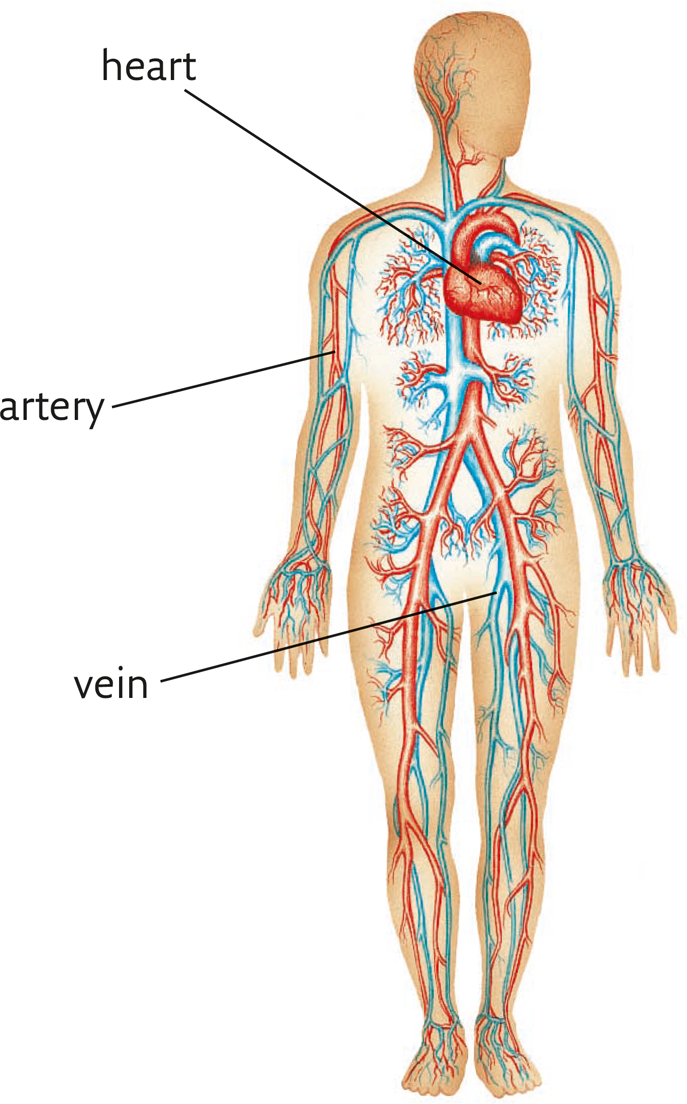
arthritis
NOUN a condition in which the joints in someone’s body become painful, and sometimes swollen
arthritic ADJECTIVE
article articles
NOUN 1 a piece of writing in a newspaper or magazine
2 a particular item • an article of clothing
artificial
ADJECTIVE Something artificial is created by people rather than occurring naturally.
ANTONYM: natural
artillery
NOUN 1 Artillery consists of large, powerful guns and rockets.
2 The artillery is the branch of an army that uses these weapons.
artist artists
NOUN a person who draws or paints or produces other works of art
as
CONJUNCTION 1 at the same time that • We watched television as we ate our sandwiches.
2 because • As I like school I get there early.
PHRASE 3 You use as if or as though when you are giving an explanation for something. • Shane walked past as if he didn’t know me.
ascend ascends, ascending, ascended
VERB FORMAL If someone or something ascends, they move or lead upwards. • We ascended the stairs to the second floor.
ANTONYM: descend
ash ashes
NOUN the grey or black powdery remains of anything that has been burnt • We put the ashes from the bonfire on the compost heap.
ashamed
ADJECTIVE 1 If you are ashamed, you feel embarrassed or guilty.
2 If you are ashamed of someone, you feel embarrassed to be connected with them.
ashore
ADVERB If someone or something comes ashore, they come on to the land from the sea or a river.
aside
ADVERB If you move something aside, you move it to one side. • She closed the book and laid it aside.
ask asks, asking, asked
VERB 1 If you ask someone something, you put a question to them.
2 If you ask someone to do something, you tell them you want them to do it. • We asked him to do his card trick.
3 If you ask for something, you say you would like to have it. • She asked for a drink of water.
4 If you ask someone to come or go somewhere, you invite them there.
asleep
ADJECTIVE If you are asleep, your eyes are closed and your whole body is resting.
aspect aspects
NOUN one of many ways of seeing or thinking about something
aspirin aspirins
NOUN 1 a white drug used to relieve pain, fever and colds
2 a small white tablet of this drug
ass asses
NOUN another word for donkey
assassinate assassinates, assassinating, assassinated
VERB If someone assassinates an important person, they murder them.
assassination NOUN
assault assaults
NOUN a violent attack on someone
[from Latin assalire meaning to leap upon]
assemble assembles, assembling, assembled
VERB 1 If people assemble, they gather together. • We assembled in the playground to watch the display.
2 If you assemble something, you fit the parts of it together. • It took us ages to assemble the model car.
assembly assemblies
NOUN a group of people who have gathered together for a meeting
assess assesses, assessing, assessed
VERB If you assess something, you consider it carefully and make a judgement about it. • She tried to assess how much further they had to walk.
SYNONYMS: judge, size up
asset assets
NOUN 1 If someone or something is an asset, they are useful or helpful. • He’s an asset to the school.
2 The assets of a person or a company are all the things they own that could be sold to raise money.
assignment assignments
NOUN a job you are given to do
assist assists, assisting, assisted
VERB If you assist someone, you help them to do something.
assistant assistants
NOUN someone who helps another person to do their job
associate associates, associating, associated
VERB 1 If you associate with someone, you spend time with them.
2 If you associate one thing with another, you make a connection between them.
association associations
NOUN 1 an organization for people who have similar interests, jobs or aims
2 An association between two things is a link you make in your mind between them.
assorted
ADJECTIVE Assorted things are a mixture of various sorts of something. They may be different colours, sizes and shapes.
assortment assortments
NOUN a group of similar things that are different sizes, shapes and colours • There was an amazing assortment of toys in the shop.
assume assumes, assuming, assumed
VERB 1 If you assume that something is true, you believe it, even if you have not thought carefully about it.
2 If you assume responsibility for something, you decide to do it. • I assumed responsibility for feeding the hamster.
assure assures, assuring, assured
VERB If you assure someone of something, you say something to make them less worried about it. • I assured him that I wouldn’t be late.
asterisk asterisks
NOUN a symbol (*) used in writing and printing to draw attention to something that is explained somewhere else, usually at the bottom of the page
asteroid asteroids
NOUN one of the large number of very small planets that move around the sun between the orbits of Jupiter and Mars
asthma
NOUN a disease of the chest that causes wheezing and difficulty in breathing
[from Greek azein meaning to breathe hard]
asthmatic ADJECTIVE
astonish astonishes, astonishing, astonished
VERB If something astonishes you, it surprises you very much.
astonished ADJECTIVE astonishing ADJECTIVE
astonishingly ADVERB astonishment NOUN
astrology
NOUN the study of the sun, moon and stars in the belief that their movements can influence people’s lives
astronaut astronauts
NOUN a person who operates a spacecraft
[from Greek astron meaning star and nautes meaning sailor]
astronomy
NOUN the scientific study of stars and planets
astronomer NOUN
at
PREPOSITION 1 where someone or something is • John waited for me at the bus stop.
2 the direction something is going in • I threw the snowball at my brother.
3 when something happens • The party starts at six o’clock.
ate
VERB the past tense of eat
atheist atheists
NOUN someone who does not believe in any form of God
athlete athletes
NOUN a person who is very good at sport and who takes part in sporting competitions
athletics
NOUN sporting events such as running, long jump and discus
Atlantic
NOUN the ocean that separates North and South America from Europe and Africa
atlas atlases
NOUN a book of maps
[from the giant Atlas in Greek mythology, who supported the sky on his shoulders]
atmosphere atmospheres
NOUN 1 gases that surround a planet
2 the general mood of a place • There was a friendly atmosphere at the party.
atom atoms
NOUN the smallest part of an element that can take part in a chemical reaction
atrocity atrocities
NOUN an extremely shocking and cruel act
attach attaches, attaching, attached
VERB If you attach something to something else, you join or fasten the two things together.
attachment attachments
NOUN 1 a feeling of love and affection for someone




